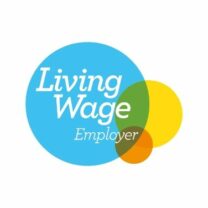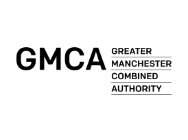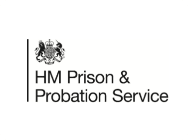In the social housing sector, smaller housing associations play a vital role in their communities, often focusing on specific demographics or housing needs. Their close ties to the people they serve mean their expenditure on goods, works, and services not only supports local economies but is also strategically important to their mission.
Many housing associations across the UK manage fewer than 1,000 properties and frequently procure works contracts beneath the £5 million threshold. While these contracts may fall below the limits set out in Schedule 1 of the Act, they remain high value and critical to the success of the organisation.
In this article, we explore how to determine if a procurement is below the thresholds set out in Schedule 1 of the Act and if it is, how that procurement should be carried out in a way that delivers value. Rather than feeling daunted by the scale and technicality of the Act, it is helpful to know that it contains useful and practical provisions that can ensure compliance whether the procurement is above or below the threshold.
Where to begin – does the Act apply to my procurement?
The first step in any procurement process is to determine if the proposed contract is covered by the provisions of the Act. This can be determined by understanding the scope of the procurement as well as the value. The majority of the provisions in the Act apply to those contracts that are above the threshold amounts that are set out in Schedule 1 of the Act.
Schedule 1 also provides helpful definitions such as sub-central contracting authority, goods, works and services that assist in defining the type of contract that is being procured as, interestingly, Schedule 2 sets out the type of contracts that are exempt from the Act altogether. In the table below are the main thresholds that are the most relevant to the type of procurement that is undertaken a social housing association. These are updated every two years.
Type of Contract |
Threshold Amount |
Works |
£5,336,937 |
Supply of goods to a sub-central contracting authority |
£213,477 |
Valuing the contract
Section 4 of the Act makes it clear that housing associations must not exercise a discretion in the way that they estimate the value of the contract in order to avoid following the rules of the Act. This applies not only to the value but to the duration of the proposed contract too. Having made an honest and realistic estimation of the length of the contract that is to be procured, Schedule 3 of the Act provides a guide as to the types of payments that a housing association might make under that contract that need to be taken into consideration when estimating the value. The value should also include VAT. Keep in mind that the thresholds will change approximately every two years so check to make sure you are working with the most up to date information.
Avoidance tactics
The Act contains a basic premise that where possible social housing associations should seek to aggregate similar contracts for the purposes of valuation, but it recognises that form should follow function. As such the Act is not directing that all contracts that are similar in nature should be procured as one. Sometimes separating procurement exercises legitimately makes sense and would lead to better outcomes than it would if they were grouped and procured together.
No known value?
In a useful clarification when compared to the current legislation, the Act states that in the unlikely circumstances where it is not possible to estimate the value of a contract, that contract should be deemed to be above the relevant threshold to which the Act applies.
What next
Having established that the contract is valued beneath the thresholds set out in Schedule 1 of the Act, the housing association must then ensure that it follows the rules set out in Part 6 of the Act when procuring its contract. Below-threshold contracts are referred to in the Act as “Regulated Below Threshold Contracts”. Regulated below-threshold contracts can be procured flexibly in so far as companies are treated fairly, equally and transparently. It is not however permissible to have a separate prequalification stage in a below-threshold procurement process.
It is permissible to assess each supplier’s suitability to perform a contract by setting proportionate standards of legal and financial capacity and technical ability, but these matters would need to be assessed within a single-stage tender process. This is unless the contract being procured is a contract for works and is valued at no less than £213,477 and up to the threshold for works contracts.
Duty to consider SMEs
In preparing to invite tenders, housing associations must consider the fact that small to medium enterprises may face particular barriers in competing for the contract and they must consider how those barriers can be removed or reduced. The Act helps the cash flow of all companies but particularly SMEs by implying payment terms of 30 days on valid and undisputed invoices into all regulated below-threshold contracts. The smallest of housing associations will need certain assurances about the companies entering their properties to ensure that they have experience and competence in their chosen field.
As a result, even the simplest of processes will contain a level of formality that can often be off-putting to a company that is established and successful and does not have the resources to complete tenders – they may well have accomplished their success without relying on public sector tendering. Smaller housing associations can play a key role in removing risk-averse barriers and offering engagement and support, making tender processes accessible and easy to follow.
Noticing requirements
Below-threshold contracts are not immune from the extensive noticing requirements of the Act. Where the below threshold contract is valued between £30,000 and up to the relevant threshold for the goods, works or services set out in Schedule 1, housing associations must decide if they think a form of advertisement is required to invite tenders for the contract. In circumstances where a form of advertisement is used, and this can be using their own website or social media channels, a notice called a “below threshold tender notice” must be published first. This notice will be published on the Find A Tender service. Whilst there is sometimes nervousness about the size of an evaluation pursuant to an advertisement, it can play a vital role in attracting companies to the opportunity increasing the richness of the competition.
Why go it alone
Central procurement authorities and their frameworks can offer housing associations of all sizes a valuable source of procurement support particularly in specialist areas such as construction and property services. Whilst frameworks have traditionally been considered as a means of shortening the procurement process for above-threshold procurements, they have benefits for procurements of all sizes.
Frameworks also allow contracts of lower value to be procured from an evaluated choice. For a smaller housing association with fewer properties or geographical considerations, a well-procured and managed framework can afford access to a choice and scale that could not be achieved if procured independently and as a single organisation.
The Act introduces greater flexibility in procurement processes through the use of closed and open frameworks. Open frameworks allow new suppliers to join over time, encouraging dynamic markets that better accommodate below-threshold procurements.
Discussions are still ongoing around how procurement processes can continue to evolve to meet the needs of diverse organisations, particularly when it comes to smaller contracts.
At Procure Plus, we were established by housing associations over twenty years ago to help the sector achieve meaningful cost savings while maximising social impact. Our team supports procurement from start to finish, ensuring that value is not only built into a project from the outset but is consistently delivered.
In light of the Procurement Act 2023, we provide expertise that enables our clients to adapt confidently, without the need for major expansion of their procurement departments. Our approach allows housing associations to tap into streamlined, compliant procurement processes that reinforce social value and local impact, particularly with the flexibility available for smaller contracts.
By working with us, clients can focus on their mission, knowing they have a trusted partner to turn plans into tangible results that strengthen their communities.
By Clare Tetlow LLM MCIPS, Procurement Lead, Procure Plus
Need help, advice or support?
Call us right now on:
Alternatively, schedule a call or meeting with one of our team
We have a team of experts ready and waiting to talk you through any queries you have, whether you’re a new or existing customer.






